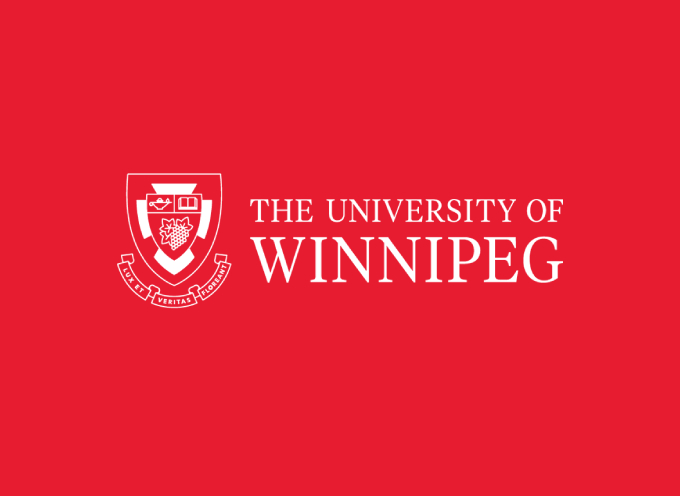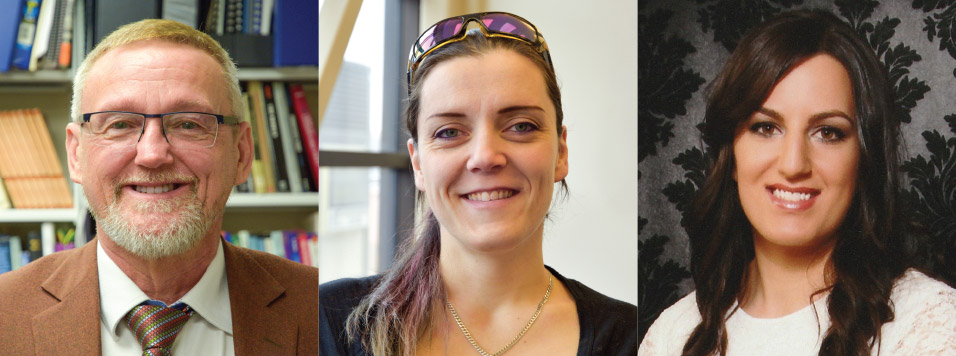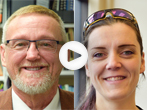The Religion & Culture program focuses on the human search for meaning and purpose in life. It sensitizes students to the variety of traditions, commitments, and cultures that exist in our world, both globally and locally. This program explores religion in four areas: Historical Judaism, Christianity, and Islam; Religion and Modern Western Culture; Asian Religions and Cultures; and Indigenous Religious Traditions.
Studies lead to a Bachelor of Arts (3-year, 4-year, or Honours) with a major in religion and culture. A joint master’s program is offered, in cooperation with the University of Manitoba. Many Religion & Culture graduates pursue careers in fields where human interaction and/or secularism, pluralism, and multiculturalism are significant factors — such as education, mediation services, social work, employee relations, immigration services, international development, and certain branches of law.
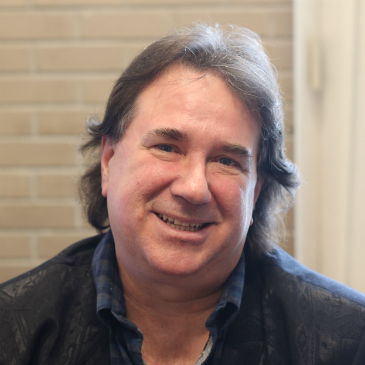
Dr. Mark Ruml, © UWinnipeg
Professor: Dr. Mark F. Ruml
INDIGENOUS SPIRITUAL HISTORY
Mark Ruml was planning to become a Catholic priest when he began to learn about the religious traditions of the world. He took the course Traditional Native Religions of the Northern Plains, from Lakota educator and artist, Arthur Amiotte, which had a profound influence on him and set his academic career trajectory — specializing in Aboriginal religious traditions.
“It made sense for me to learn about the traditions of the Indigenous people whose homeland my Scottish, Irish, English, and Czech ancestors immigrated to since the early 1800s,” said Ruml. “I feel that it is important to Canadian history and reconciliation that we record the life and teachings of the current generation of spiritual leaders who have maintained the continuation of the ceremonies and teachings, despite colonization, and who serve as a link to the past.”
Ruml is working on two research projects: he is completing a book on Canadian Dakota religious history, and one that relates to Indigenous spiritual biography.
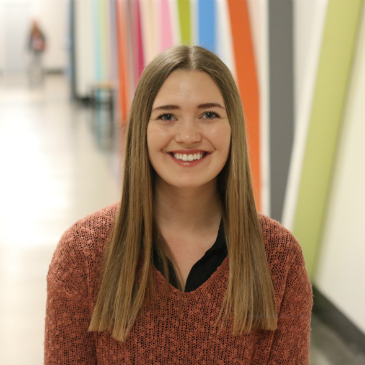
Annie McBay, © UWinnipeg
Student: Annie McBay
A BROADER UNDERSTANDING
Annie McBay initially took a measured approach to studying religion and culture. She started with a biblical history course, and soon found she enjoyed it more than any of her other subjects.
“I was instantly hooked. So I took a few more religion courses and gradually that was all I was taking.”
Now in the final year of her honours degree, McBay said she was drawn to studying religion because it helps with understanding society and human nature. She is interested in modern religion and the intersection of religion and politics.
She recommends studying religion and culture because it provides the opportunity to learn about history, politics, and human nature. “It has exposed me to diverse material and helps me to feel prepared to work or study in a variety of fields,” McBay said.
Last year, McBay got to present her research Accidental Sufism: The Lego Movie and Ibn al-’Arabi at the international American Academy of Religion Conference in Minneapolis.
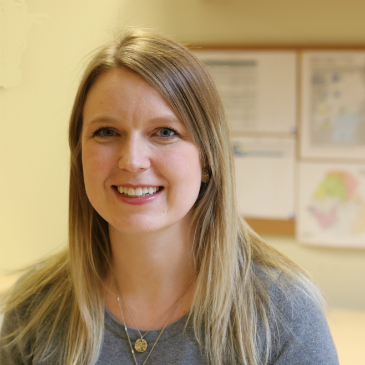
Kristy Bergman Schroeder, © UWinnipeg
Alumna: Kristy Bergman Schroeder
ENHANCED CULTURAL SENSITIVITY
Kristy Bergman Schroeder became interested in religion and politics while pursuing an undergraduate degree in interntional relations. Her interest continued post-graduation, as she embarked on a career in
international development.
“Religion is often really important in the lives of people in our program communities,” said Bergman Schroeder. “I think understanding that is essential for doing culturally sensitive programming.”
She decided to complete a Master of Arts degree in religion at The University of Winnipeg (jointly offered with the University of Manitoba). Her graduate research let her explore ideas relevant to the work she was doing primarily in the Middle East and Africa.
“I work with partners and colleagues in other countries so it is important to understand how they see the world,” said Bergman Schroeder. “My MA helps a lot in terms of communication and understanding. I am able to contribute to our programming more effectively and in more culturally sensitive ways.”
See more Spotlight features here.

